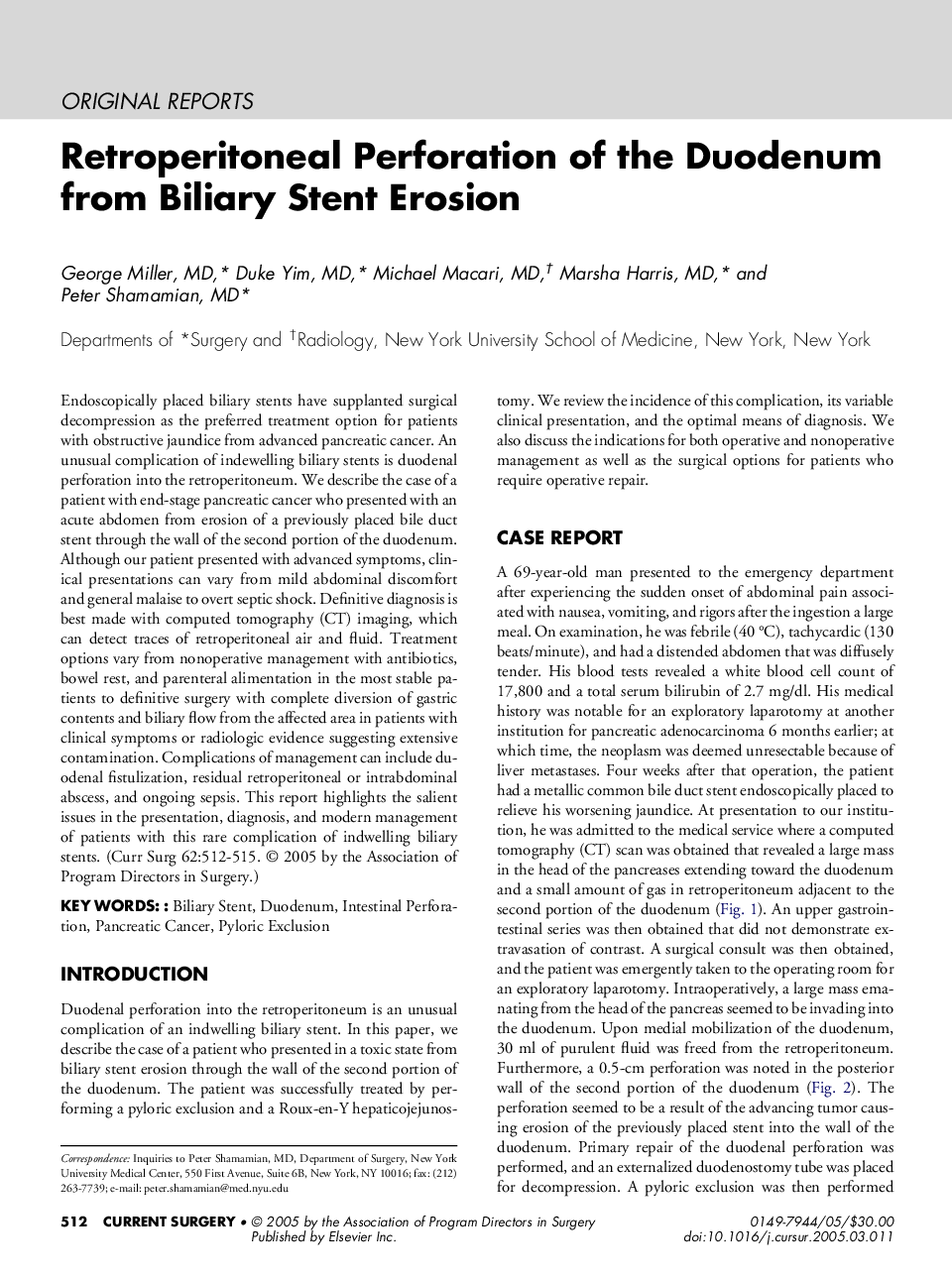| Article ID | Journal | Published Year | Pages | File Type |
|---|---|---|---|---|
| 9399849 | Current Surgery | 2005 | 4 Pages |
Abstract
Endoscopically placed biliary stents have supplanted surgical decompression as the preferred treatment option for patients with obstructive jaundice from advanced pancreatic cancer. An unusual complication of indewelling biliary stents is duodenal perforation into the retroperitoneum. We describe the case of a patient with end-stage pancreatic cancer who presented with an acute abdomen from erosion of a previously placed bile duct stent through the wall of the second portion of the duodenum. Although our patient presented with advanced symptoms, clinical presentations can vary from mild abdominal discomfort and general malaise to overt septic shock. Definitive diagnosis is best made with computed tomography (CT) imaging, which can detect traces of retroperitoneal air and fluid. Treatment options vary from nonoperative management with antibiotics, bowel rest, and parenteral alimentation in the most stable patients to definitive surgery with complete diversion of gastric contents and biliary flow from the affected area in patients with clinical symptoms or radiologic evidence suggesting extensive contamination. Complications of management can include duodenal fistulization, residual retroperitoneal or intrabdominal abscess, and ongoing sepsis. This report highlights the salient issues in the presentation, diagnosis, and modern management of patients with this rare complication of indwelling biliary stents.
Related Topics
Health Sciences
Medicine and Dentistry
Surgery
Authors
George MD, Duke MD, Michael MD, Marsha MD, Peter MD,
